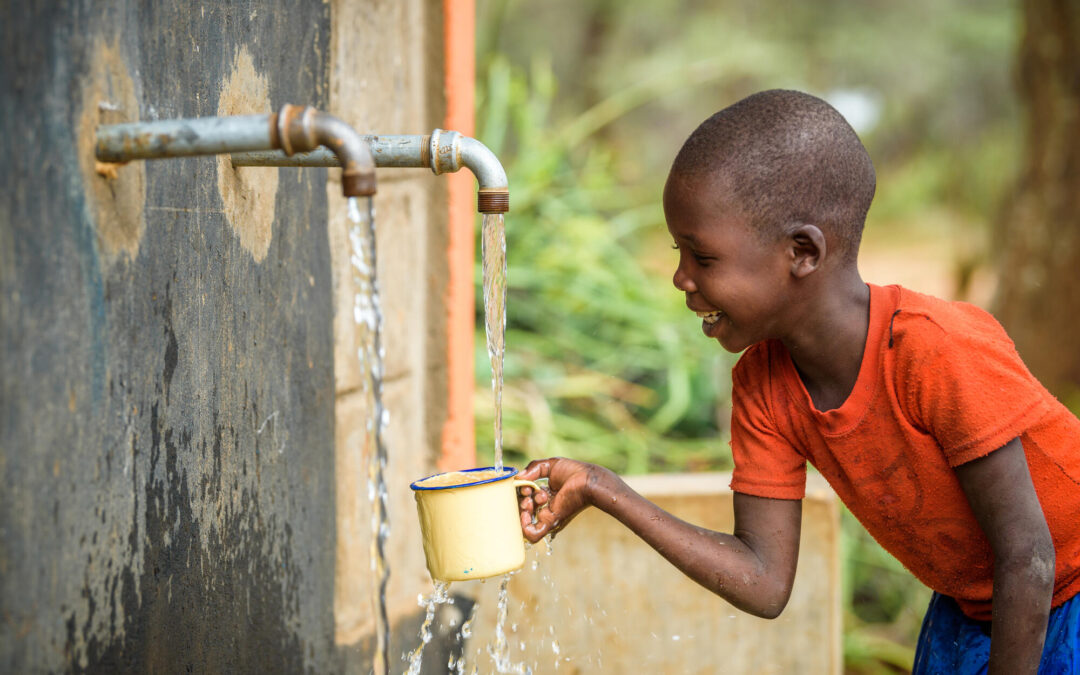The world is in a global water crisis. Approximately 26 percent of the planet’s population lacks access to safe drinking water and 46 percent lack access to proper sanitation. In addition, a staggering two-thirds of the world’s population—2.7 billion people—experience temporary severe water scarcity for at least one month per year.
This crisis is projected to get worse soon if measures are not put into place to address it. According to the United Nations, there could be a 40 percent deficit in freshwater by the end of this decade. Desalination has been touted as a solution, but this process can be environmentally harmful, as many of the current desalination technologies use fossil fuels and ocean-polluting chemicals.
Although these numbers are troubling, some companies have developed innovative ways to work toward solving the global water crisis in a more environmentally friendly way. Here is a look at some of the most promising startups operating in this sphere.
Manhat
Manhat is a United Arab Emirates-based startup that uses the natural water cycle to produce fresh water sustainably. Manhat’s natural process produces no carbon emissions nor brine rejection (salty wastewater). It also does not use any electricity. Sunlight is used to heat ocean water, which is transformed into a vapor that condenses to form water droplets. This water is then collected as pure, clean drinking water.
Distillation technology is used to accelerate and capture the evaporation of ocean water, and this newly created fresh water is used in floating farms to irrigate and grow crops.
Manhat’s technology is designed to avoid the environmental pitfalls of ocean water desalination. While desalination plants can effectively produce clean water, most forms of desalination are energy-intensive. These plants can increase greenhouse gas emissions and dependence on fossil fuels.
In addition, water desalination plants produce large flows of extremely salty wastewater and toxic chemicals that damage the environment. According to a study by the United Nations, these plants produce 142 million cubic meters of salty brine each day. This salty water is pumped into the sea and is toxic to aquatic life.
Oneka Technologies
Based in Canada, Oneka Technologies is another startup that sustainably converts seawater into freshwater.
This system uses wave energy from the ocean for this conversion process. Wave-powered desalination buoys are deployed off of the coast. Each of these buoys is tethered to an anchor on the floor of the ocean, and the motion of the waves is used to activate the system inside the buoys. Sea water is drawn into the buoys as they move on the surface, and this water is then filtered.
As the buoy moves up with the waves, the water is pressurized in a pump. The water then moves into a pressure and flow optimization system and moves through reverse osmosis membranes. The strainer, filters, and membranes are self-cleaning.
Twenty-five percent of the water is desalinated, and the remaining 75 percent, which contains the salt that was extracted during desalination, returns to the pressure and flow optimization system. This low salinity brine water is then returned to the ocean. The brine concentration from this system is drastically lower than that of traditional desalination systems and has a much lower environmental impact.
The newly created freshwater is transported to the shore via a submerged pipeline. Finally, it is stored in a water tank, where it can be dispersed for consumption or used in industry.
Desolenator
The Desolenator machine is capable of converting both saltwater and dirty water into distilled drinking water using heat and energy. This self-contained system is a solar panel that converts sunlight into electricity and uses heat to boil contaminated water.
Water is heated on top of a solar panel until it reaches a temperature of approximately 95° Celsius (203° Fahrenheit). This water then flows into a small boiler vessel, similar to a kettle. The electricity created by the solar panel flows into the boiler through a spiral heater and the water evaporates. The vapor from the top of the boiler is collected in a tube and fed back into a cavity at the top of the solar panel, where it is converted to distilled water.
Like Manhat and Oneka, Desolenator provides an environmentally friendly alternative to traditional desalination systems, as it is entirely solar-powered and avoids the use of fossil fuels. In addition, it does not use membranes or toxic chemicals.
Desolenator also provides “water as a service” for both communities and businesses, providing potable drinking water and ultra-pure water for various applications, such as green hydrogen production. These services are provided through a low-cost monthly bill.
Each modular Desolenator plant is capable of producing up to 250,000 liters of fresh water each day. Founded in 2015, the company has grown exponentially in recent years and is currently in the process of scaling up for worldwide deployment.

